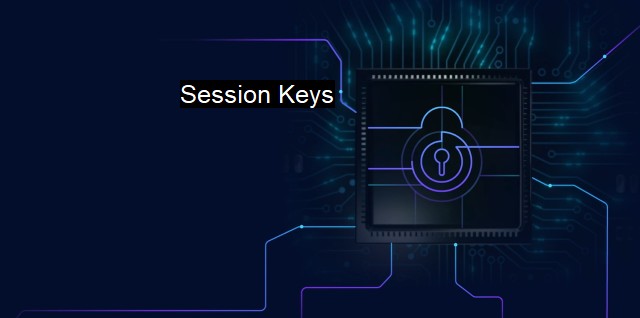What are Session Keys?
Session Keys: The Indispensable Component for Foolproof Cybersecurity and Unwavering Antivirus Protection
"Session keys" lie at the heart of digital and cybersecurity processes, ensuring the secure and confidential sharing of information across networks. If you consider cybersecurity as a fortress guarding precious information, session keys are akin to the keys used to lock and unlock the doors.Session keys are techniques used in encrypted communication and applied in nearly every type of Internet communication technology. A session key typically is an encryption and decryption key, uniquely generated to encode a specific session of transmission of data. Encryption and decryption are processes that scramble and unscramble data, respectively, protecting the original information being sent from unauthorized access. The fact that these session keys are distinctive for each interaction or session is a massive factor in increasing the general security of data transmission across digital platforms.
So, what role does the session key play in the field of cybersecurity? Primarily, it functions to secure data transmission. Imagine you need to send an urgent message to a colleague. This message contains sensitive information that, if leaked, could affect your company's reputation or functioning drastically. Here's where the session key comes into play. Instead of sending your message directly, which would put it at risk of interception by malicious entities, the data is encrypted using a unique session key. This session key, acting like a one-time password, ensures that only the receiver's device, which also possesses the session key, can decrypt the information. The data remains overlaid with a layer of gibberish to all others without the key, thus protecting the sensitive information.
Session keys must be transacted securely between the sender and receiver and should not fall into the wrong hands. To further secure this process, key distribution centers and algorithms like Diffie-Hellman key exchange are deployed. session keys are often replaced or discarded after every session, which prevents the data from being compromised even if a hacker manages to secure a single key.
One might ask why session keys are necessary, especially when users already protect their data with personal usernames and passwords. The answer lies in the vast interconnectedness of today's digital universe. The traverse of data among devices, apps, and over insecure networks exposes the data to ongoing cybersecurity threats.
The importance of session keys cannot be overstated in the context of antivirus software, too. As part of an antivirus suite's layered defense strategy, data between your computer and a server is often encrypted with a session key. It adds an additional line of defense to protecting your data from malicious software like Trojans, worms, and other viruses that want to capture your personal information.
To further bolster the authenticity and security of the data, some encryption systems pair session keys with public key systems. The public key is known openly but is used in tandem with a private key to encrypt and decrypt the information. with the advent of quantum computing, the field of cryptography and session keys promises to explore new frontiers of security, bolstering cybersecurity further.
Session key encryption is a contemporary cybersecurity mechanism aimed at safeguarding data during transfer, ensuring uncompromised and secure communication across digital platforms. As we move forward into an increasingly digital age where hostile cyber threats continue to evolve, technologies like session keys and other cybersecurity strategies will remain imperative for maintaining the safety of our data exchange.

Session Keys FAQs
What are session keys and how are they used in cybersecurity?
Session keys are temporary cryptographic keys that are created for a specific communication session between two entities. These keys are used to secure the data exchanged during the session and protect it from unauthorized access. Once the session is over, the session key is discarded and a new one is generated for the next session.How do session keys help in preventing attacks from viruses and malware?
Session keys play a vital role in preventing attacks from viruses and malware by encrypting the data being sent between two entities. This encryption makes it much harder for attackers to intercept and read the data, reducing the chances of a successful attack.What is the process of generating session keys in cybersecurity?
The process of generating session keys involves using an encryption algorithm to create a random string of bits that is used as the key. This key is then shared between the two entities involved in the session through a secure channel such as SSL/TLS. Once the session is complete, the key is discarded and a new one is generated for the next session.How do session keys differ from encryption keys?
Session keys and encryption keys differ in terms of their scope and duration. Encryption keys are typically used to encrypt data at rest, such as stored files, while session keys are used to encrypt data in transit during a specific communication session. Encryption keys are generally long-lived and used for an extended period of time, while session keys are short-lived and discarded after the session is over.| | A | | | B | | | C | | | D | | | E | | | F | | | G | | | H | | | I | | | J | | | K | | | L | | | M | |
| | N | | | O | | | P | | | Q | | | R | | | S | | | T | | | U | | | V | | | W | | | X | | | Y | | | Z | |
| | 1 | | | 2 | | | 3 | | | 4 | | | 7 | | | 8 | | |||||||